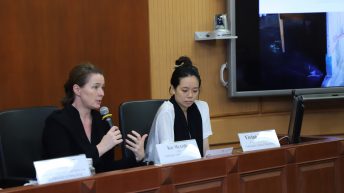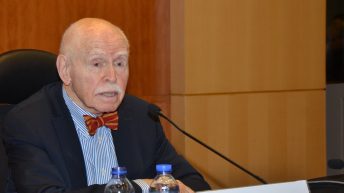Date: 14Oct 2015
On 16 March 2015, Malaysian opposition leader Anwar Ibrahim’s petition for pardon from what he claims was a politically-motivated conviction for sodomising his male aid was rejected by Malaysia’s King, the Yang di-Pertuan Agong. In Malaysia’s Federal jurisdiction, the Yang di-Pertuan Agong exercises the prerogative power to grant clemency or pardon on advice from a specially-constituted Pardons Board, consisting of up to five members. In his presentation, Dr Pascoe will describe the way in which the Malaysian Pardons Boards operate, and propose a set of plausible hypotheses explaining why the rejection of Anwar’s application for pardon, submitted on his behalf by his wife and daughters, came as no surprise.
Dr Daniel Pascoe was appointed Assistant Professor at the School of Law, City University of Hong Kong, in January 2014. His research areas include the death penalty in comparative perspective, law and society in Southeast Asia and Islamic law. Dr Pascoe earned his Bachelor of Laws and Bachelor of Asian Studies degrees from the Australian National University, and was admitted as a Legal Practitioner of the Australian Capital Territory Supreme Court in 2008. Thereafter, he moved to Oxford to read for an MPhil in Criminology and Criminal Justice and later a DPhil in Law, which he completed in 2013 with a thesis on clemency and pardons in Southeast Asian death penalty cases.




